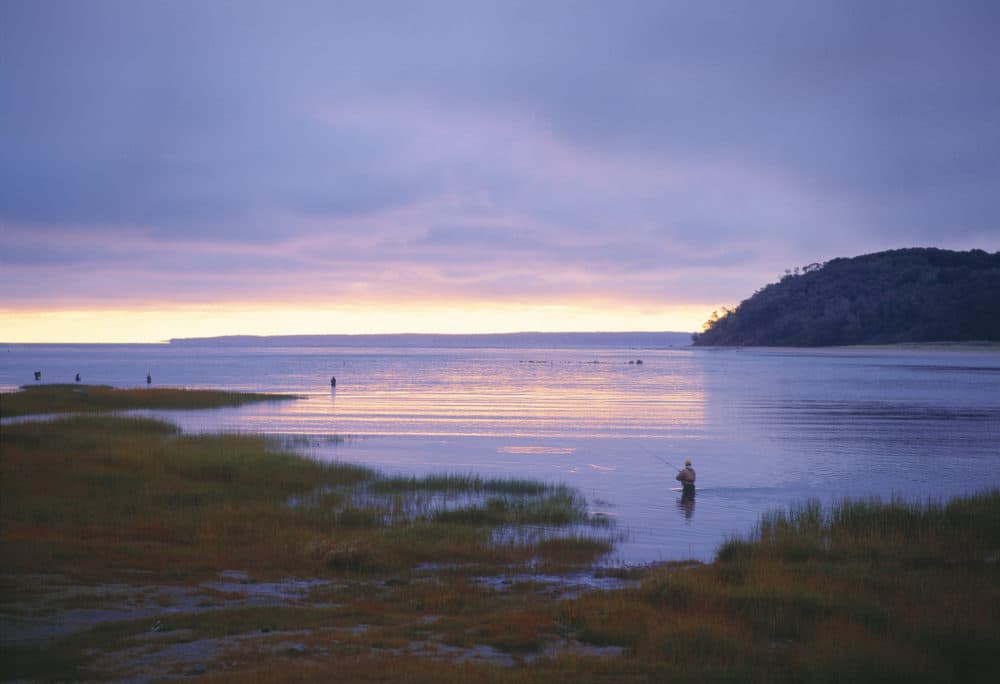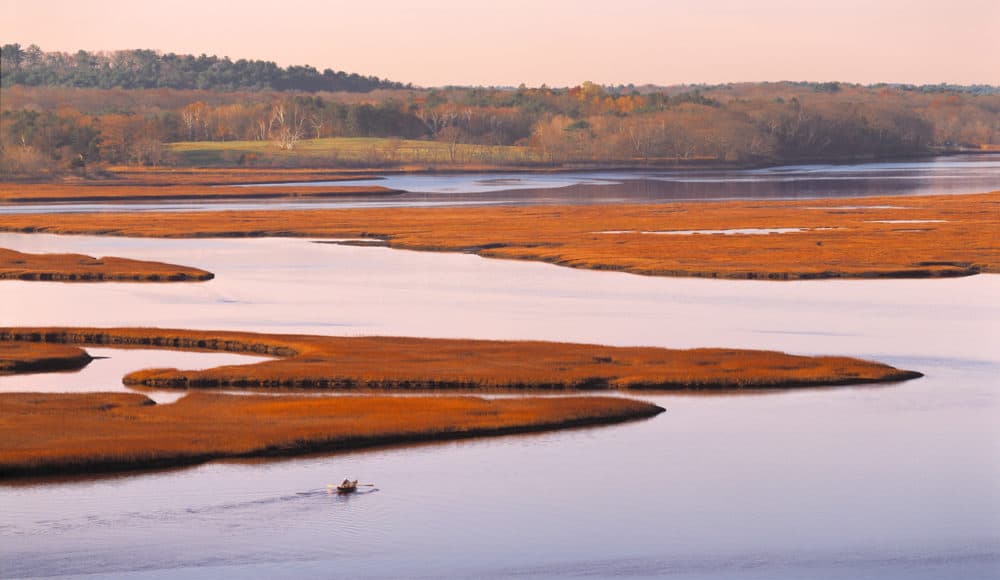Advertisement
National Report Puts Ipswich River Near Top Of 'Most Endangered' List

The Ipswich River winds along 45 miles of northeastern Massachusetts, through hardwood forests and marshy floodplains, from the town of Burlington to Plum Island Sound. It's known as one of the best rivers in New England for trout fishing, and it also supplies drinking water to more than 350,000 people.
But stretches of the river have run bone dry in recent years, killing fish, damaging ecosystems and threatening the drinking water supply of more than a dozen communities.
A new report from the national advocacy group American Rivers lists the Ipswich as the eighth most endangered river in the country, listing "excessive water withdrawals" as the leading threat.
"It's being loved to death," says Wayne Castonguay, executive director of the Ipswich River Watershed Association. Castonguay blames outdated environmental regulations that have allowed too much water to be pumped out of the river. "The whole watershed is unbalanced."
In 1986, Massachusetts enacted the Water Management Act, which limited how much water organizations and companies could pull out of the river. But groups with existing permissions — what the state calls "registrations" — were allowed to continue withdrawing water at the pre-limit rates, even during droughts.
More than 90% of withdrawals from the Ipswich River are exempt from any conservation measures, according to American Rivers. And 80% of the water pumped out of the Ipswich is exported out of the river's watershed.
This creates a balance problem, Castonguay says — the water removed from the river isn't being replenished.
"If we were to just use it, clean it up and put it back, we wouldn't have the problem we have," Castonguay says. But that's not happening, and so the river — and underground aquifers — are running low.

Climate change is making matters worse.
In the past five years, Massachusetts has had two of its worst droughts in history, according to American Rivers. In 2016, more than 90% of the state faced a "severe drought," according to the U.S. Drought Monitor, causing widespread water shortages or restrictions.
"Municipalities and residents are increasingly worried about running out of water," noted the American Rivers report. "While behavior and land use changes can lower some water use, we cannot solve this problem without a more balanced regulatory framework."
State officials are currently considering two different measures that could help address the issue. The state legislature has introduced a drought bill to limit non-essential outdoor watering — like on lawns — during droughts. And the Massachusetts Department of Environmental Protection has also announced plans to limit withdrawals during droughts.
This month the Ipswich River Watershed Association — a 1,500-member group of residents, scientists, businesses and community leaders — launched the Endangered Ipswich Campaign. The campaign calls on individual citizens to limit their water consumption, and on towns within the river's watershed to examine how zoning and development regulations impact the river.
The campaign has garnered the support of John Kerry, the special presidential envoy for climate.
In a taped video message, Kerry said the Ipswich River is particularly close to his heart, because he used to paddle with his cousins through the river's winding curves to Wingaersheek Beach. And he acknowledged the crucial role of grassroots efforts to address the climate crisis.
"The truth is, so much of the work that we need to do to address environmental challenges actually happens not internationally but in much smaller communities — in states, countries, cities and towns around the world."
